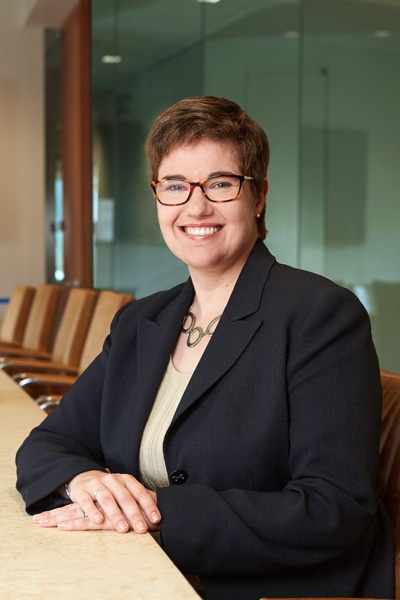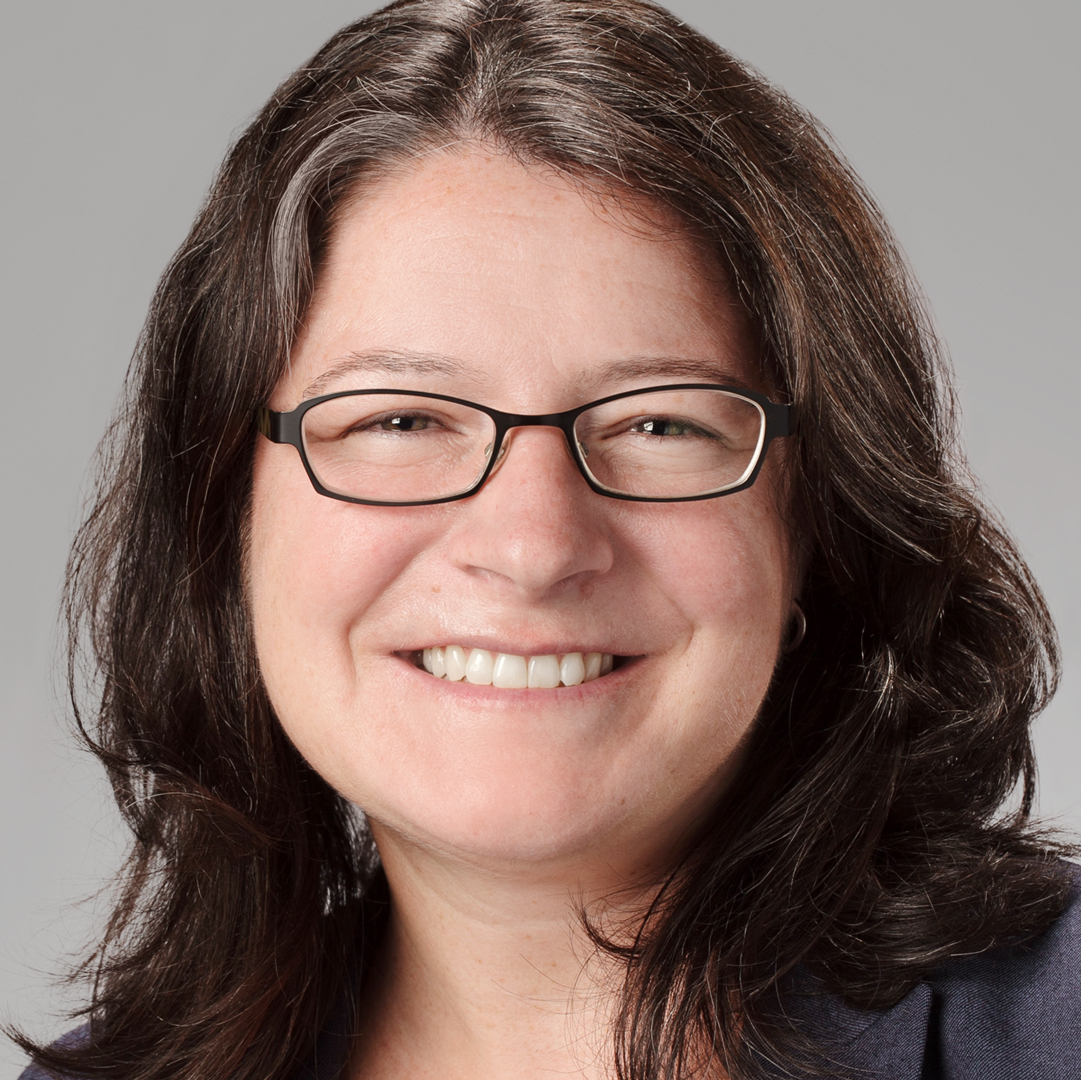In the wake of the Enron accounting and fraud scandal in the early 2000s, securities law began to explode as Congress acted and securities regulators vowed to do better.
That happened to coincide with when Eugenie Cesar-Fabian (who goes by Genie) emerged from law school and entered securities law as an associate. Legal battle lines were being drawn in the field, as were the role lawyers and regulators alike would play in shaping how securities law would affect high finance on Wall Street.
“It was a heady time and really interesting,” says Cesar-Fabian, now general counsel and chief compliance officer at the private equity firm Palladium Equity Partners, about her first years as a young legal associate.

She gained an early ability to view the field from a broad perspective. In one case, she was working on behalf of a firm where two brokers had been charged with serious securities fraud claims. In that case, the client wanted to cooperate with the Department of Justice in its prosecution of them: “[The client was] happy to assist because these guys had defrauded customers,” Cesar-Fabian says.
And so, something interesting happened. Even as a member of the defense bar, Cesar-Fabian served her client by actively cooperating with federal prosecutors in trying their case. Understanding both the prosecution and defense of securities law as it played out in real time served as a valuable lesson in a field where some take advantage of legal gray areas to cross ethical lines.
When Cesar-Fabian wanted to make the transition to in-house counsel—seeking a saner work schedule to attend to her two children and a new family life—she wondered how a financial services firm would deal with that complexity.
In that regard, Cesar-Fabian says she feels no less than blessed at Palladium. The firm was already practicing and instilling the idea of “the Palladium Way”—ethical to a fault and wanting to hold itself to the highest standards in business—long before she got there in 2011. When founder Marcos Rodriguez, who serves as chairman and CEO, began to build Palladium in 1997, he envisioned a firm that would lead the way in doing business ethically and built a culture to support that mindset.
It’s a culture where profits are not the only goal, which makes Palladium an “awesome place to work,” Cesar-Fabian says. In that sense, “Palladium is very much the needle in the haystack. I love it. I have friends that I will have for life.”
Still, even though Palladium’s culture was ripe for the kind of legal and compliance rigor that Cesar-Fabian brings to the job, it can be tough to keep up with regulators. The US Securities and Exchange Commission (SEC) only began to regulate private equity when private equity provisions of the Dodd-Frank Act went into effect in 2012. Since then, what’s required of private equity firms like Palladium has become clearer, but the priorities of the SEC continue to evolve rapidly.
To ensure that Palladium is in full compliance with all regulations, Cesar-Fabian works with Associate General Counsel and Deputy Chief Compliance Officer Dominick Barbieri, a former SEC enforcement attorney, as well as outside counsel to determine priorities. She also reads “as many speeches and statements and alerts and settlement orders as I possibly can. You have to do a real-time risk assessment to determine what you think matters most,” she says.
When Cesar-Fabian first joined Palladium, she wasn’t sure how she’d navigate the potential minefield facing private equity as Dodd-Frank took effect and its laws were being interpreted. She remembers how difficult the move was at times. She had come from an environment at a law firm where writing ability and legal knowledge were most prized. Now, she had to set up a formal compliance operation in an uncharted regulatory environment and where everyone else was primarily focused on business transactions. Initially, it proved a “jarring transition,” she says.
In the business world, unlike law practice, Cesar-Fabian explains, “soft skills” and an aptitude for relationship-building are key attributes. The legal research, analysis, and writing skills she had built in private practice were no longer as important as they had been. Cesar-Fabian also wasn’t sure how those pursuing deals would react to the added layers of oversight and compliance.
“Palladium is very much the needle in the haystack. I love it. I have friends that I will have for life.”
Luckily, Palladium’s steadfast culture of strong business ethics ensured that the ground had been tilled for Cesar-Fabian’s compliance efforts long before her arrival. She remembers when an internal compliance initiative to monitor employee emails surfaced messages that said, “Should we ask Genie about this?” It showed her that the firm was seeking to do the right thing in any given transaction.
“I’m really proud of the culture we’ve built at Palladium,” she says. “The fact they’re asking is just phenomenal. It shows the tone is right and the culture is right.”
The way Palladium operates its business means that it’s far ahead of the curve on progressive issues that some firms have only recently begun to think about. Environmental, social, and governance (ESG) issues have become a bigger focus in recent years, which means measuring deals not just by traditional business metrics but by whether firms are sustainable in a variety of other ways.
When Palladium measured itself against key metrics recently, it found that it was already well positioned to be a leader in the field. For example, 75 percent of its current portfolio companies have minority board representation, and 75 percent have female representation.
Even with such strong figures, the firm continues to prioritize increasing diversity on its portfolio company boards, and Cesar-Fabian has taken a leading role on such initiatives at Palladium, which includes understanding and gauging success in those areas.
“Genie is one of a kind,” says Bruce I. March, cochair of Greenberg Traurig’s global corporate practice. “Her extraordinary commitment to diversity and inclusion is a beacon of hope and inspiration for the alternative investment industry.”
During the COVID crisis, Palladium showed its commitment to ESG. The company worked with leaders of companies in its portfolio to make sure they were prioritizing their employees.
“These are real people who have real families, and they have a job they’re trying to do,” she says. “We are extremely proud of the portfolio companies.”
The business side of things also benefited in the longer term, meaning companies have been resilient. This resilience proved once again that the Palladium Way works not just from an ethical or moral standpoint, but from a business one, too. “We’re seeing the fruits of those efforts,” Cesar-Fabian says.
Indeed, Palladium has doubled in size since Cesar-Fabian first joined, now has nearly $3 billion in assets under management. In all, Palladium has made 35 platform investments and more than 135 add-on acquisitions since its founding. It is the ultimate affirmation of how Palladium has sought to do business over the last two decades.
As Cesar-Fabian puts it, “Top to bottom, we are all striving to do business the Palladium Way, which yields dividends. We’re proving it out, and that makes me super excited.”


